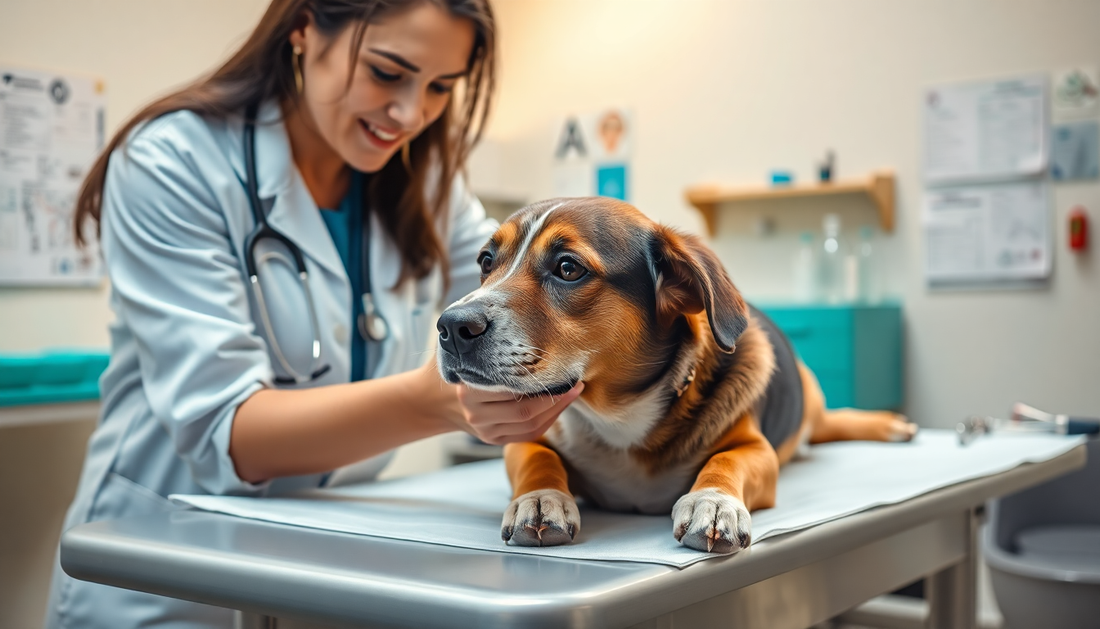
Top 5 Signs Your Dog Needs to Visit the Vet
As a pet owner, it's important to be attentive to your dog's health and well-being. While regular check-ups with a veterinarian are crucial, there are also certain signs and symptoms that may indicate your furry friend needs immediate medical attention. In this blog post, we'll explore the top 5 signs that your dog needs to visit the vet.
1. Changes in Appetite and Drinking Habits
One of the most obvious signs that something may be wrong with your dog is a change in their eating and drinking habits. If your pup suddenly starts eating significantly less or more than usual, or if they seem disinterested in their food altogether, it could be a sign of an underlying health issue. Similarly, if your dog is drinking excessively or appears to be dehydrated, it's important to have them checked out by a vet.
These changes in appetite and hydration can be indicative of a variety of conditions, such as diabetes, kidney disease, or even cancer. By addressing these issues early on, you can help ensure your dog's health and well-being.
2. Unusual Bathroom Habits
Another key indicator that your dog may need veterinary attention is a change in their bathroom habits. If your pup is having difficulty urinating, experiencing incontinence, or producing abnormal-looking urine, it could be a sign of a urinary tract infection, bladder stones, or even a more serious condition like kidney disease.
Similarly, if your dog is experiencing diarrhea, constipation, or vomiting, it's important to have them checked out by a vet. These gastrointestinal issues can be caused by a wide range of factors, from dietary changes to more serious conditions like pancreatitis or inflammatory bowel disease.
3. Changes in Behavior or Mood
Dogs are often excellent at hiding their pain or discomfort, but changes in their behavior or mood can be a telltale sign that something is amiss. If your pup is suddenly more lethargic, irritable, or anxious, it could be a sign of an underlying health issue.
Additionally, if your dog is exhibiting unusual behaviors, such as excessive licking, scratching, or hiding, it may be an indication of a skin condition, allergies, or even a neurological problem. By paying attention to these behavioral changes, you can help your vet identify and address the root cause of the issue.
4. Unusual Lumps or Bumps
As your dog ages, it's not uncommon for them to develop various lumps and bumps on their body. While many of these growths may be benign, it's important to have them checked out by a vet to rule out the possibility of more serious conditions, such as cancer.
If you notice any new or unusual lumps or bumps on your dog, it's best to have them examined by a professional. Your vet can perform a physical examination and, if necessary, order additional tests to determine the nature of the growth and the appropriate course of treatment.
5. Difficulty Breathing or Coughing
Respiratory issues can be a serious concern for dogs, and they should not be ignored. If your pup is having difficulty breathing, exhibiting rapid or labored breathing, or experiencing persistent coughing, it's important to have them checked out by a vet.
These respiratory problems can be caused by a variety of factors, including allergies, infections, or even heart disease. By addressing these issues early on, you can help ensure your dog's comfort and overall health.
In conclusion, being attentive to your dog's health and well-being is crucial for their long-term happiness and quality of life. By recognizing the signs that your pup may need veterinary attention, you can take proactive steps to address any underlying issues and ensure your furry friend receives the care they need. Remember, regular check-ups with a trusted veterinarian are also an essential part of maintaining your dog's health, so be sure to schedule those appointments as well.


